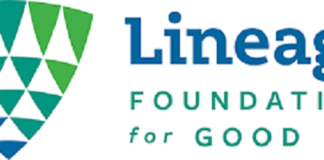
By Brett Hoopingarner, director of underwriting for Sentry Insurance
Protect your business in an uncertain economy by reducing risk and managing your coverages
Over the last several years, the food processing industry and its suppliers have faced the hardships of fluctuating supply chain costs, inflation, shifting consumer demand, and workforce shortages. Yet the pressure on your business to keep shelves stocked and fulfill orders for the hungry consumers of the world remains.
In the auto industry, missing a chip for a seat warmer is an inconvenience for the consumer. But a missing component for a machine in a food production line can have far more detrimental consequences. As supply chain issues mount and the cost of everything rises, this can make it difficult to set your business up for success. From everyday supplies and vital machine repairs to the fuel for your delivery vehicles, prices keep hitting new record highs.
When you assess where to manage costs in the current economy, adjusting your insurance coverage might seem like a viable option. However, doing so could lead to more financial risk instead of savings if you downsize critical coverages or overlook the importance of adding others. In fact, insurance can oftentimes be one of the most cost-effective ways to protect your business from larger, unexpected losses. For this article, I’ve compiled several cost-effective steps you can take to protect your business in 2023.
Enhance your safety program
Labor shortages have challenged the food industry for many years. Any accident during operations could injure your most valuable asset—your employees. Many workplace accidents are preventable and the potential cost to your business from injury litigation and medical costs is climbing. One of the most common areas of concern in food manufacturing is improper machine guarding. In your world of conveyor belts, bandsaws, and packaging machines, removing the guarding or manipulating it for convenience could not only be illegal—it could lead to injury and related costs.
Likewise, your employees can be prone to muscle strains, imbalances and fatigue, and other soft tissue injuries due to the nature of their work. Poor ergonomics in the workplace can fuel this area of employee injuries.
In response to this, it’s important to initiate a formal safety plan—or beef up the one you have—to avoid potential injuries to your team. You can foster a culture of safety in several ways:
- Hold regular safety meetings
- Work with your insurer to develop a comprehensive safety plan
- Invite employees to take turns leading safety meetings so they take ownership of the safety plan
- Offer incentives for safety, such as bonuses
- Encourage leaders to model safe behavior while working on the plant floor or driving a company vehicle
Adopting a proactive approach to safety—rather than a reactive one—can help prevent accidents from happening in the first place. An outcome that benefits your team and your business.
Make driver safety a priority
The costs of an accident are rising as the prices of most vehicles remain high. When it comes to your insurance policy, make sure you have enough physical damage coverage to account for higher repair costs. But more importantly, it’s time to take a closer look at driver safety.
If you hire or entrust employees to move products and supplies behind the wheel of your company vehicles, it’s imperative to look at their driving histories with laser focus. In an environment where you may feel the need to meet delivery needs, don’t relax your hiring and training standards.
A thorough safe driving program can save your business significant costs and reduce the risk of an accident. A quality program should typically outline driver selection criteria, education and training standards, and a formal process for reviewing safe driving habits. Before hiring new drivers, review their motor vehicle reports (MVRs). Putting a driver with a poor record in your company vehicles could create additional liability risks for your business. Let’s use an example:
Imagine a hypothetical scenario where one of your employees is distracted while making a delivery, leading them to run a red light. In this scenario, that employee also has several driving citations on their record, including two DUIs from several years ago. In this instance, they cause an accident that damages another vehicle and severely injures occupants in the other car.
If a lawsuit results from that accident, an attorney may review whether you examined the driver’s MVR profile before hiring them. If you put a driver who has a poor driving record on the road in your company’s vehicle, your business could face significant financial and legal consequences.
In the example I just shared, any damage to your company’s reputation following the accident could also affect customer loyalty and employee retention. Don’t let one avoidable accident affect everything you’ve worked hard for.
Update your equipment and property values
An often-overlooked result of inflation and supply chain issues is an increase in your building valuations. The values of your equipment, building, and vehicles have likely increased since your last renewal. This means if your food processing equipment breaks down or your building suffers storm damage, you may not have enough coverage to help you rebuild, repair, or replace your equipment and facilities.
And even as the supply chain recovers, material shortages still exist, which means it could take weeks and often months longer to replace damaged possessions. Fortunately, you can make two adjustments to your policy to help protect your business from inflation and supply chain delays:
- Include an inflation guard provision in your policy: An inflation guard provision automatically increases the value of your insured property to compensate for the rising cost of materials throughout your policy term.
- Consider increasing your business income coverage: If your business suffers a catastrophic loss, it may take longer to get your business back to full strength due to supply chain delays. While your business recovers, you’ll need to continue paying your employees, manage bills, and balance other expenses. While you may already have business income coverage to protect your business from worst-case scenarios, talk with your insurer to make sure you have adequate coverage in 2023 to account for longer repair times. In some cases, repairs may take anywhere from six to 12 months longer than they did several years ago.
Reduce your upfront premium
To manage insurance costs while keeping your business protected, you can also increase your deductibles. But it’s not a decision to take lightly. First, you need to have thorough safety policies and hold your business accountable to them. You can work with your insurer to see where you can improve your risk management program. Food processing businesses that integrate safety throughout their business are often the most successful at reducing their costs.
You can reduce risk across your business and confidently increase your deductibles—and in turn, lower your ongoing cost—if you establish, enact, and adhere to a safety plan. This can play a big role in controlling your long-term insurance costs. Talk with your insurance provider to determine the best approach for your business.
Take the next steps
As the industry faces workforce shortages, rising material costs, and an irregular supply chain, insurance remains one of the few ways to financially protect your food processing business. Still, the trends and tips I’ve shared in this article are only meant to help guide the conversations you should be having with your insurer. A local expert can help you make the most informed decision regarding updates to your business’s safety program and coverages.
With a few updates to your policy and a priority on safety, you can have peace of mind that your business is protected—leaving you with more time to focus on your employees and customers. Stay safe, and best of luck in the year ahead.
 Brett Hoopingarner is the director of underwriting for Sentry Insurance. Sentry provides property, casualty, life insurance, and retirement products to the food processing industry. Learn more at sentry.com.
Brett Hoopingarner is the director of underwriting for Sentry Insurance. Sentry provides property, casualty, life insurance, and retirement products to the food processing industry. Learn more at sentry.com.








